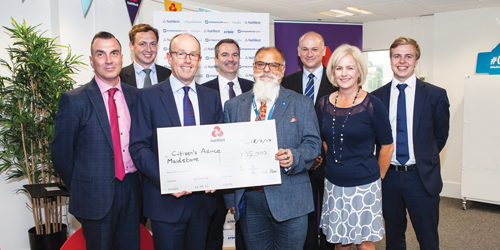
We are nearing the eye of the storm. Whether this be through changing attitudes of employees and consumers, innovation driven by artificial intelligence, political changes at home and in the US and, of course, Brexit, the macro environment is changing.
With this uncertainty, there arises many fantastic opportunities for successful businesses to grow, thereby maximising the return on their business for its owners. It will be of no surprise that these owners will have strong financial analysis driving this success, critical to execute a mid- to long-range plan.
This is where a strong finance director can be a great benefit. From acting as a sounding board for strategic ideas, to engaging and challenging management against pre-determined goals, the FD is a true deputy to the managing director.
So why would your business need an FD, virtual or otherwise? There are, of course, many reasons, but I believe there are five main drivers.
Great ambitions to grow, with no long-range plan in place. This is a common occurrence in SMEs and entrepreneurial businesses where a great idea or delivery method is present, but clear stated financial objectives are not. A plan can be developed which empowers senior managers to take ownership of objectives, with a clear view as to how they measure up against the overall goals on a regular basis. This is further underpinned by development of management accounts which actually give information that leaders can make decisions on, in a timely manner.
Business is booming, but cashflow remains a constant worry. In any high growth organisation, working capital will be tight. A well developed and structured reporting tool will help identify crunch points ahead of time, and a good FD will have several suitable financing options to call upon to steer through these times. This may be through drawdown on invoice discounting facilities, or identifying the best time to order foreign currency to ensure exchange fluctuations are mitigated.
Unknown impact of changing variables. Sensitivity analyses and a good stress test of your business is key to negotiating uncertainty. Will your imports become too expensive for your business model to work after a change in currency rates? What if inflation continues to rise, leading to an interest rate hike – how will you afford to keep debt payments on the funding obtained when your business was growing? Does your business rely on EU workers, and how will exit from the EU impact resourcing?
Processes are time consuming and do not add value to customers. Lean process management is a crucial cost effective tool which can free up time for team members to work on delivering value to customers, and differentiating your business from the masses. Making processes efficient, from a clear vision of what “good” looks like, can really improve productivity whilst maintaining the control required to detect and prevent errors occurring.
The business has excellent product/ process ideas, but little idea of the costing and profitability of the venture. It is useful to have someone with a prudent approach to costing and profitability analysis. This not only helps to play devil’s advocate, but to ensure that the idea will ultimately achieve its desired financial and operational objectives. Business Case Analyses (BCAs) are powerful tools to ensure that the idea has every chance of succeeding, and can also be used when quoting for new opportunities.
THE VIRTUAL FD
Whilst a good finance director is expensive, you may not need them in a full-time position. The day-to-day running of the finance team should be well run by process, ensuring an efficient streamlined function. In this case, having a good business advisor, acting as a virtual FD, could be your solution. The scope is flexible, and the business retains control and allows for focussed effort on what is important.
Generally, a virtual FD is always on hand to answer any questions arising or to discuss ideas, and attends monthly or quarterly board meetings to discuss results and direction of the business. Outsourcing this position means that continuity of service is maintained, and the virtual FD can dip into a wide-ranging talent pool within the organisation.
Although SMEs make up a large proportion of all businesses, many do not have this key position of strategic advisory servicing in place. Perhaps this is down to a seemingly unneeded cost or a lack of quality resource out there to trust. However, in the changing world today, there must be no misunderstanding as to how much value the virtual FD can bring to a business.





